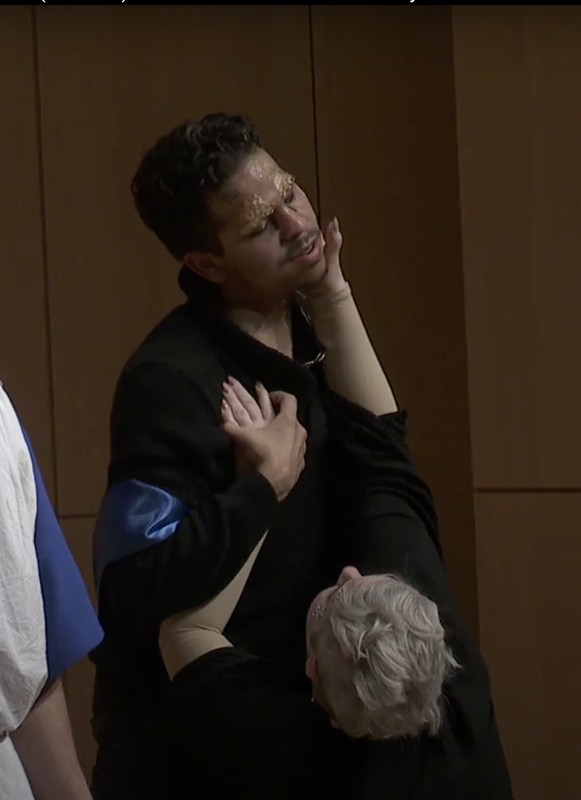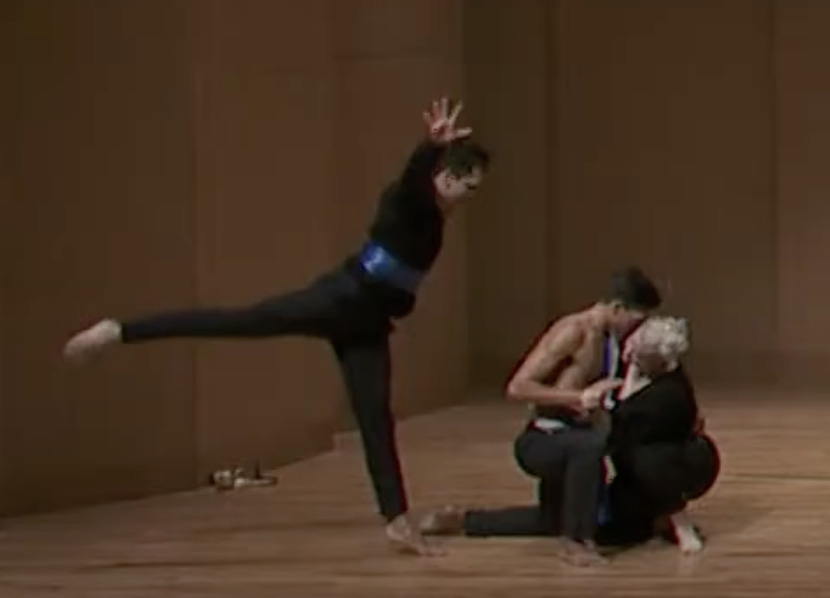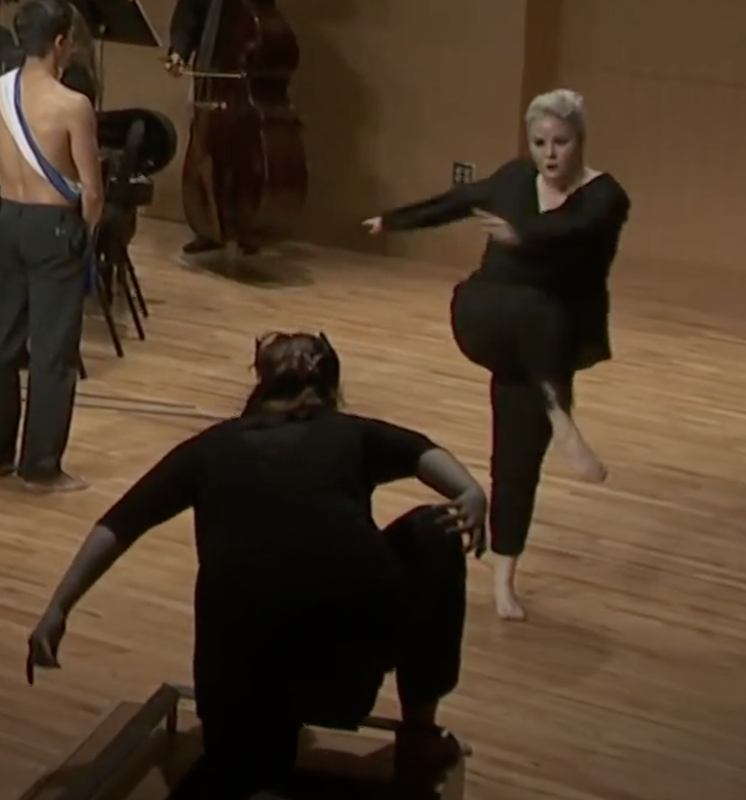|
Coronide: A Serious (and yet comic) Opera about Love and Unverified Informationn
From the Composer: In the summer of 1731, following the order of the Cardinal Schrattenbach, the opera Coronide was staged in the Chateau Kromeriz. The only part that has survived is the libretto, supposedly written by "un Pastor Arcade." Twenty years ago, Tomas Hanzlik, the director of the Baroque 2000 festival and the artistic leader of the Ensemble Damian, decided to revive this baroque text. He then approached me with a request to write a new opera based on the extant text. i found this idea fascinating but the scope of the libretto as well as its form pointed to other directions. For a long time, I hesitated about a possible approach to the baroque text, whether to imitate a baroque opera or merely use its form as a point of departure. Finally, I decided to "browse through the opera" and enhance its impact by taking a shortcut through its original dramatic line. I chose the most impressive passages and supplemented them with one sentence commentaries from Ovid's Metamorphoses. The baroque libretto thus works as a basis for telling a mythological story of the dramatic fate of Coronis (Coronide). - Vit Zouhar From the Director: When I was first introduced to Vit Zouhar's Coronide, it was apparent that this would be unlike any opera with which i has been involved. The minimalistic writing thrives on the repetition of pitches and rhythmic modes to create soundscapes and cohesion acrosss twelve musical scenes. And while the manipulation of these elements is not new by today's standards, this compositional style applied to a surviving baroque libretto piqued my interest. A purist as heart, my first concept for this opera was to use "period" costumes, but the music did not call for traditional staging. I imagined Greek and Roman statues and the stoic façade of a mythological deity, and I envisioned the inevitable emotional turmoil that would be present in this storyline. Slowly, I started to see a relationship between the soundscape and the emotional pangs of these characters. this is when I began to see dancers as the emotional translators of the music and when the many juxtapositions of this opera started to solidify. Each singing character of this opera walks their preordained path as dictated by mythology's Three Fates, reflecting the constant shift that is life. However, the choreography of the dancers reflects the visceral emotions that exist below the surface of the music. The story of Coronis and Apollo is not unusual for a Greek tragedy. Coronis is Apollo's lover. Apollo leaves a white raven to guard Coronis in his absence. She is unfaithful, and the raven reports her treachery to Apollo. inn return, he curses the raven black. Apollo inflicts death on Coronis in anger but discovers that she is pregnant and saves the child at the last minute. Studying the libretto and score led me to see that Apidamia could very well be Apollo's cursed raven, and that Dafnni could certainly be the lover of Coronis. Tonight, this is the story we present to you. The complexity of relationships, unrequited love, jealousy, isolation, deception, heartbreak, anger, revenge, and salvation are all wrapped into twelve musical scenes. Don't worry, true to its Greek roots, there is a moral at the end of the story. Enjoy the show! -Kristen Sullivan |
Composer: Vit Zouhar
Director/ Producer: Kristen Sullivan Choreography: Jessica Murphy Conductor: Ryan Sullivan Vocalists: Kristen Sullivan (Coronide), Eric Laine (Apollo), Hannah Ceniseros (Apidamia), & Matt Slemon (Dafni) Dancers: Cylene Walker-Willis (Coronide), Rolando Medrano (Apollo), Havyn Couger (Apidamia), & Robert Alvarez (Dafni) Violin: Diego Campos, Adrienne Leung, Jingwen Xin, & Kathleen Crabtree Viola: Kathleen Crabtree Cello: Emma Bittner & Alex Paradis Contrabass: Irmak Subuncu Organ/ Rehearsal Accompanist: Esme Wong Premiere: November 29, 2018, North American premier of the opera |
Sponsored by the University of North Texas as part of their third International Festival of Czech Music



